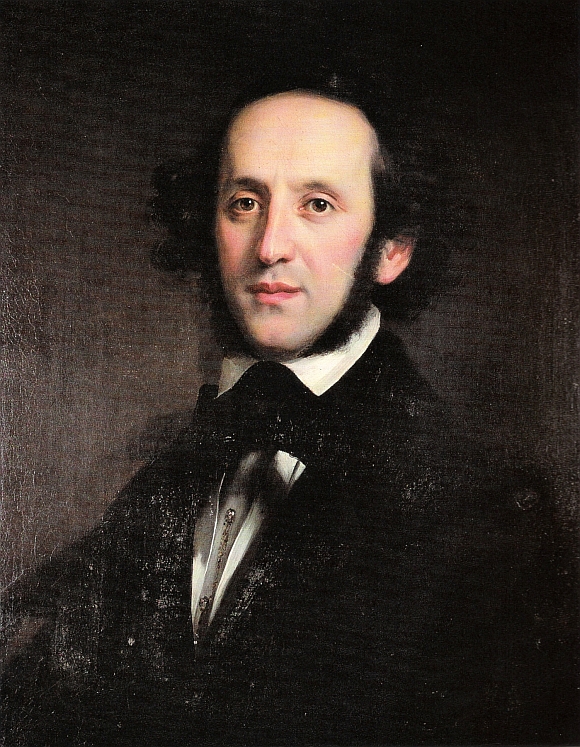
Felix Mendelssohn was born two hundred years ago today. It’s hard to imagine the cultural life of the German-speaking world of the nineteenth century without the name “Mendelssohn” because it attaches both to one of the outstanding figure of the German Enlightenment, Moses Mendelssohn, and to his grandson, Felix, one of the greatest Romantic composers. But he was more than just a man of music. Unlike his contemporaries, Schumann and Schubert, Mendelssohn was a far more rounded individual—he was a towering intellect, deeply immersed in the literary and philosophical life of his times. He also sensed the potential for music in a society transformed by a rising middle class with an attachment to art, and he was focused on the need to win recognition for music as a dignified profession that paid salaries and benefits. His role as founder of the Leipzig Conservatory and his extraordinary relationship with the Gewandhaus, in which he emerged against all expectation as an advocate for the right of the musicians to a comfortable life (including a pension!) demonstrate this. So Mendelssohn counts among the relatively small order of musical geniuses who had both a sense of entrepreneurship and of social duty to his fellow musicians. But his music is also extraordinary, in a sense often approaching perfection. The symphonic works, like the Scottish, Italian and Reformation symphonies, and concerto pieces like the wonderful violin concerto, are filled with seemingly boundless energy, an optimistic note coupled with a bit of the demonic, an elfin intensity. But Mendelssohn also is to be remembered for his recognition of genius past and his resurrection and reintroduction of the great passions of Johann Sebastian Bach. His Bach revival was a lasting tribute to forgotten art, but it left unmistakable influence on him. My favorite Mendelssohn work, much neglected but certainly his masterpiece, is the oratorio “Elijah,” a powerful merger of the oratorio tradition of Bach and Handel with the spirit of the Romantic movement. The work was finished only shortly before his death, and it is filled with what in retrospect seems a prophetic sense of imminent passing. Here, Dietrich Fischer-Dieskau sings the aria “It is enough” accompanied by the New Philharmonia Orchestra under Rafael Frühbeck de Burgos. Shut out the world and listen to these few minutes with care. You’ll discover a world of passion and introspection which will reward the effort many times over.


